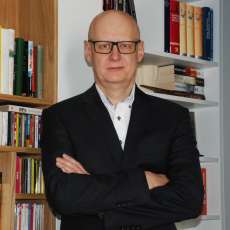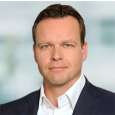CJR Renewables, originally a Portuguese company, has been present in Poland since 2008. They provide EPC (engineering, procurement and construction) and BOP (balance of plant) services to the renewable energy sector, including both wind and solar.
CJR Renewables is present in more than 20 countries around the world. Can you briefly explain what drove your interest in the Polish market?
It was rather circumstantial actually. An investor we used to work with in a different market expanded to Poland and needed a BOP partner. They proposed we provide them this service and this sparked our interest to establish a permanent presence here. From here we continued our expansion across CEE, especially after 2015 when the law for renewable energy became less attractive in Poland.
Indeed 2014-2015 represented a tough period for renewables in many countries across CEE. How did the situation in Poland compare with other countries in the region?
The impact on businesses was similar, although the changes were triggered by different reasons. The energy sector is deeply influenced by political decisions and what we can observe is that renewable energy does not have a constant, slow paced growth. Most often this sector has seen years of intense activity followed by painful drops.

Nowadays we are focusing most of our resources on Poland because we are confident business opportunities will flourish here in the coming years. But we do maintain an active presence in neighboring countries as well, to balance our portfolio in case of unexpected decisions. It is best to be prepared.
We are noticing an overall optimistic feeling permeating the renewable energy sector here. Where do you see most opportunity for CJR Polska in the period to come?
We plan to focus on onshore wind technology in the next two to three years because most of the remaining projects which will be built during this period. Brand new projects will likely take a few more years to come to fruition, mainly because of the distance law that we have in place, which leaves very little room for development. We are hopeful that this rule will change but even so we expect there will be a gap of a few years until new projects are up and running.
As for PV, this technology looks very stable and promises huge opportunities. Although projects are typically small scale (up to 1MW), their number is very high.

The limitations we have in place for onshore wind development play out as an advantage for PV. As we run out of wind projects to be auctioned, this will open up the technology basket above 1 MW for big scale PV projects. I expect this will happen sometime in 2021-2022.
What does this mean for your business? How are you adjusting your strategy?
What we have learnt is that our company’s success is highly dependent on people and how well prepared they are. This is why our strategy is to have people ready to work on both technologies - if there is a drop in investment in PV for instance, we can easily switch to wind. As a service provider we must adapt to the direction that investors take.
Given the relatively recent explosion in renewables on a global scale, finding qualified employees appears to be a recurring concern – how are you handling the availability of skilled workforce in Poland and the region?
This is indeed one of our main concerns. There was a lack of investment in renewable energy in the past few years, and this naturally created a gap in experience.

Right now the market is booming and the number of local experienced people is not enough to match the number of opportunities.
We are lucky to be part of an international company because we can receive support from other locations. We presently have colleagues joining us from Romania, Serbia, Portugal and so on - one would be truly surprised about how many nations can be found on a construction site nowadays.
These new opportunities have created a very competitive business environment. What is your strategy to stay ahead?
We compete on experience and reliability and the reason is the following: the auction rules impose a certain timeline in which the project must come to completion. If they do not meet deadlines the developer is out of the auction and can lose any PPAs they have in place. This means that the two biggest risks for any developer are BOP service providers and turbine suppliers.
It is crucial for them to find reliable service providers, with a healthy financial structure, and our track record is excellent from this perspective. The good work we have done both in Poland and abroad gives great comfort to our clients and made us one of the most recognized BOPs in the market. Our objective for the long term is to maintain this leadership position.
Do you have a final message for investors that are looking at Poland as their next destination?
Investors should pay very close attention to Poland because it offers a rare combination of opportunity and stability. Firstly, the country is stable in terms of political issues and economic growth, and most of the risks that investors would face around the world are not present here. And secondly, there are few countries in the world that are as dependent on conventional energy as Poland, which means there is both room for and urgency in developing new RES capacities.





